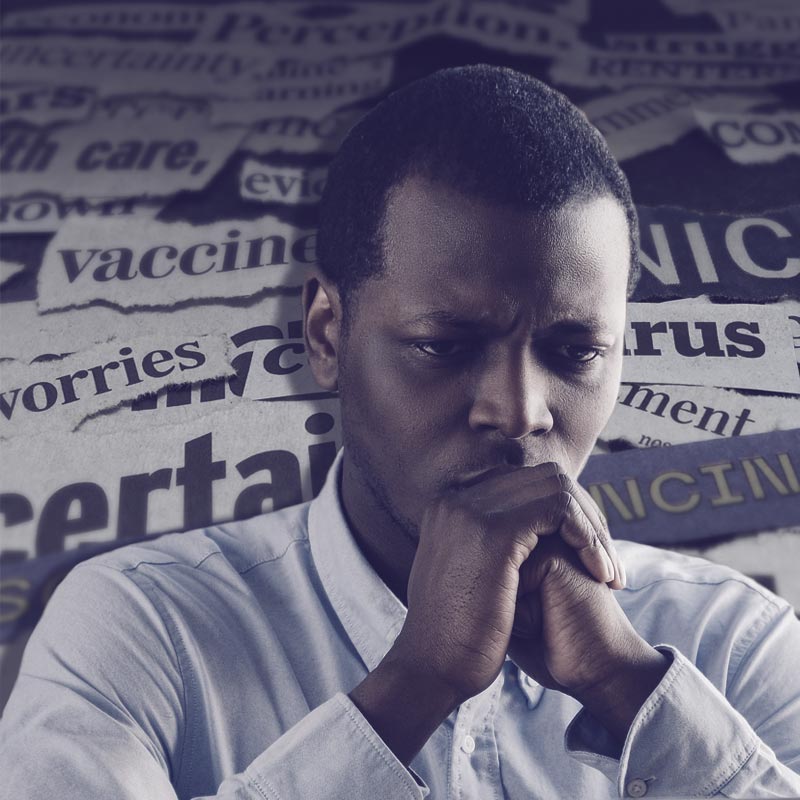As published and seen in the May 11, 2020, issue of Health Affairs

The breadth and expected duration of the COVID-19 pandemic brings the entire range of society’s institutional structures into sharp relief at once. Its pervasive impact stretches from the direct toll, chronicled daily in news reports tracking increased cases and deaths, to extensive economic and psychological distress from America’s efforts to mitigate the virus’ spread.
The pandemic’s effects are connected. Mitigation efforts prevent disease spread, but they also disrupt economic activity, employment, and access to basic goods and services such as food, shelter, water, and utilities. These effects cascade, producing stress, anxiety, and strain in coping with daily life. All of these effects have health consequences. Indeed, viewed comprehensively, the pandemic’s overarching effect is to challenge the basic building blocks of a healthy society across all sectors. But amidst all of the tragedy and upheaval, we also can chart a unified course for a healthier, more equitable future.
Historic Racism Visible During The Pandemic
Even prior to the pandemic, our American society was not healthy. COVID-19 would swiftly reveal that we were not prepared for the challenges upon us. The list of our vulnerabilities is long. We spend much more money on health care than any other country. Nevertheless, our care is average, and life expectancy in the United States is falling. For most Americans, real income has been flat for 40 years. Income and wealth inequality have increased over the past several decades. These diverging economic paths are paralleled in educational outcomes, which in turn coincide with lack of health insurance and deaths of despair. The shortcomings of our public health infrastructure have been on widespread display. Family structures are stressed in response to economic struggles in an evolving global labor market. Most Americans don’t think we are on the right track as a country. Our rural health infrastructure is on life support.
At the heart of these vulnerabilities are harmful inequities that originated in our history and have been reinforced by many policy decisions and perpetuation of institutional structures. Racism and poverty were apparent in our society as the pandemic took root, providing rich soil for its spread. The stress on multiple societal systems—from health care, to businesses, to nonprofits, to criminal justice, to public health, and more—reveals the magnitude of inequity that pre-existed the pandemic. Most remarkable, this inequity shapes who gets sick, who gets care, and who dies from COVID-19 (and other diseases); who will become poor, who will be unemployed, and who will lose their businesses; and, ultimately, who will become stressed, anxious, and psychologically harmed.
Who is being most affected? As with most crises, poor people. People with chronic health conditions such as diabetes, heart disease, addiction, high blood pressure, and respiratory diseases. People without health insurance. People without shelter. People struggling to find work. People such as transit workers, garbage collectors, mail carriers, informal care givers, and grocery store staff whose work puts them in harm’s way. Black Americans and other minorities, who, by virtue of the legacy of our nation’s structural racism and their exposure to various forms of discrimination throughout their lives, make up a disproportionate share of all these groups. Here in Missouri, the numbers reflect the impact on black Americans, but this state is not alone.
Our work at Missouri Foundation for Health (MFH) challenges the inequitable systems that serve as barriers to disenfranchised communities and populations. During this season of COVID-19, recognizing that those same injustices are at the forefront of the pandemic has only expanded our commitments to those who have traditionally been excluded from health, economic, and social advancements. Our support of PrepareSTL, a collaborative public-private campaign to help prepare black and foreign-born St. Louisans living and working in the region’s most poverty-stricken ZIP codes, underscores the fact that communities fighting to stay healthy right now need the most accurate, culturally focused information, delivered by trusted messengers. The first coronavirus testing centers that opened in North St. Louis City and North St. Louis County—Missouri’s hardest hit areas—were part of MFH’s initial $15 million strategic investment. Our support of the health safety net addresses the basic needs—food, mental health care, and primary care—of those most in need and the systems that serve them. These projects came together with collaboration and partnership at the core of our efforts.
We’re All In This Together
Just as we should view the pandemic’s effects in a unified way, our response should be unified. State circumstances vary, but every state must respond. Given what we know in my home state of Missouri, I’d suggest the following:
- Equity. This should be considered a core value and serve as a primary lens for decisions about resource allocation, so that the people most likely to be affected by COVID-19 benefit from the responses. Put simply—strengthen structures that serve high-risk population groups and focus resources on black American communities at higher risk of dying from COVID-19, on Missourians at high risk of experiencing deaths of despair concentrated in our rural areas, on the recently unemployed, and on Missourians in need of mental health care.
- Evidence. Rely on science and best practices from around the world for decision making. Our knowledge of the coronavirus is increasing daily, so we must adapt our responses to incorporate new findings and changing circumstances. Science is not limited to public health and medical issues. Therefore, we should rely on experts from a variety of disciplines, including economics, behavioral science, and finance. This encourages wide-ranging engagement in problem-solving and a diverse mix of energy, talent, skills, and goodwill. Just as important as relying on evidence is minimizing the influences of political maneuvering and institutional self-interest.
- Transparency. The public welcomes straight answers to tough questions.
- Collaboration. Build on new relationships formed in initial responses to COVID-19. Many organizations have moved past institutional self-interest to collaborate with former competitors, create new avenues for cooperation, and get organized and generate ideas. These developments should be celebrated and encouraged.
Inequities are not immutable. They don’t have to be society’s most important pre-existing condition the next time disaster strikes. Achieving progress toward a healthier society requires sustained systemic efforts to reduce inequities. We must do that work now “for the sake of all.”


